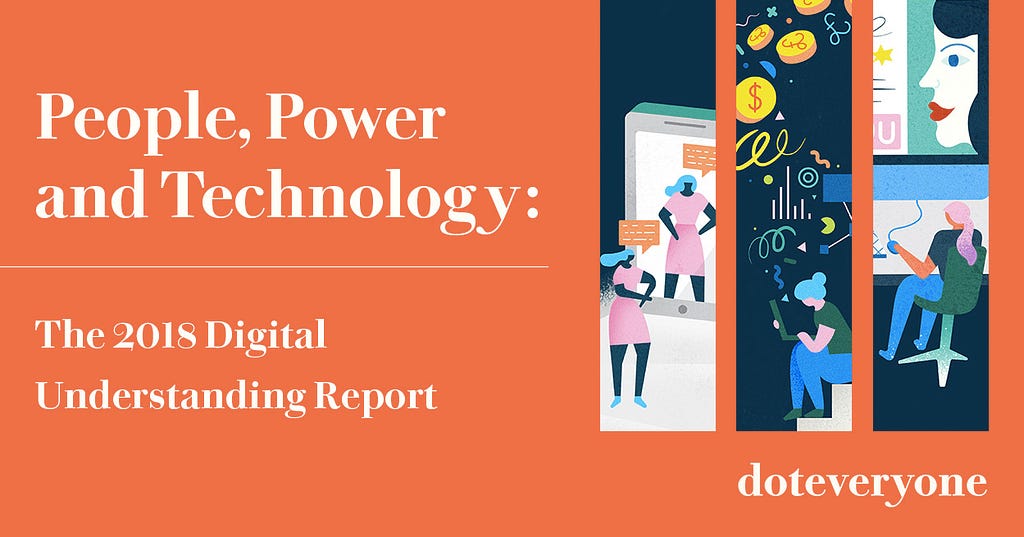People, Power and Technology: the 2018 Digital Understanding Report

There’s a big difference between having digital skills — knowing how to use the internet — and having understanding — knowing the implications of using the internet.
Over 90% of the population have at least some basic digital skills. But digital understanding is not about being able to code, it’s about being able to cope. It is about adapting to, questioning and shaping the way technologies are changing the world.
Today we launch the latest of our People Power and Technology reports.
In the first report, we explored the public’s attitudes towards technology and found that while people love using technologies, they’re uneasy about their impact on society, want greater clarity about how they operate and greater accountability from technology companies.
This second report sets out a definition of digital understanding, explores the UK public’s understanding of technologies explores in depth the UK public’s understanding of technologies and exposes where the gaps lie.
We identify five common digital blindspots where the UK public is not aware of the key ways in which technologies operate. They include:
- How adverts target you — 45% are unaware information they enter on websites and social media can help target ads
- How your personal information is collected — 83% are unaware information can be collected about them that other people have shared
- How prices can vary — 47% have not noticed that prices change when they search repeatedly for them online, and only 21% are aware that data can be gathered in order to determine the price they pay for goods online
- Where your news comes from — 62% don’t realise their social networks can affect the news they see, with serious implications for society and democracy
- How products and services make money — 24% don’t know how tech companies make money
But this is not to lay the blame for this at the door of the public. Digital understanding is dependent on digital technologies being understandable. At present they are not.
People, Power and Technology is a challenge to those who create the products and services that people rely on to make understandability the building block of everyone’s digital experience. And it is a challenge to government to create and enforce standards of transparency and accountability for digital products and services. These actions must be supported with the public education needed to help close the understanding gap.
The report includes recommendations for:
- New codes of practice for design and consent in the technology industry, so that products and services do the hard work to be understandable
- A central, trusted and independent source of information with clear, up to date plain English explanations of the key aspects of digital understanding
- Public engagement to support digital understanding at all levels of society — not just for children and with a specific focus on digital leadership for public institutions
To read the full report, including our recommendations, visit http://understanding.doteveryone.org.uk.
We hope you enjoy reading the report and look forward to hearing your feedback. Please join in the conversation and share your thoughts using #PeoplePowerTech and tagging us @doteveryoneuk.
This research is based on a nationally representative survey of 2,000 people online and 500 by phone, backed by in-depth conversations in focus groups. It has been possible thanks to the generous support of Doteveryone’s partners and has benefitted from the input of many colleagues across the academic, policy and charity world who have generously shared their time and ideas.
People, Power and Technology: the 2018 Digital Understanding Report was originally published in Doteveryone on Medium, where people are continuing the conversation by highlighting and responding to this story.